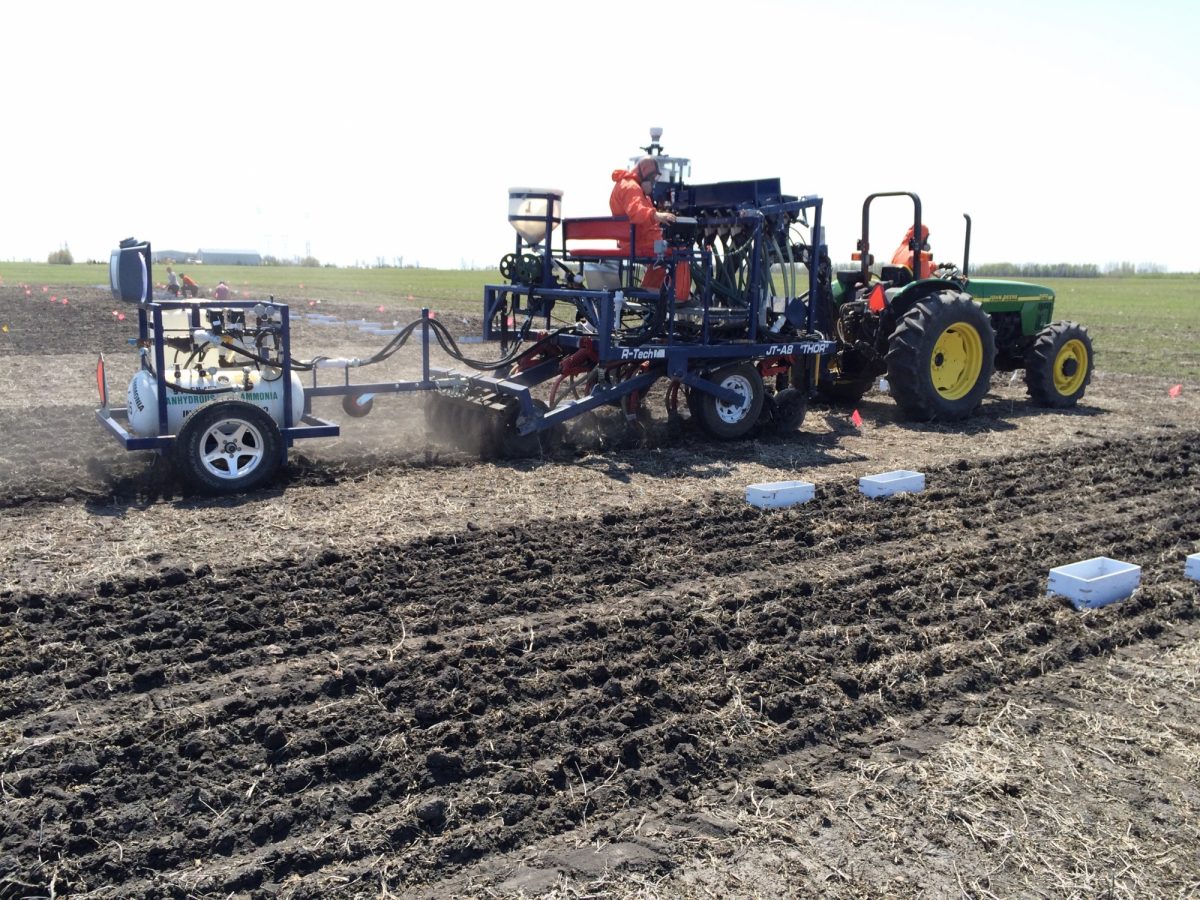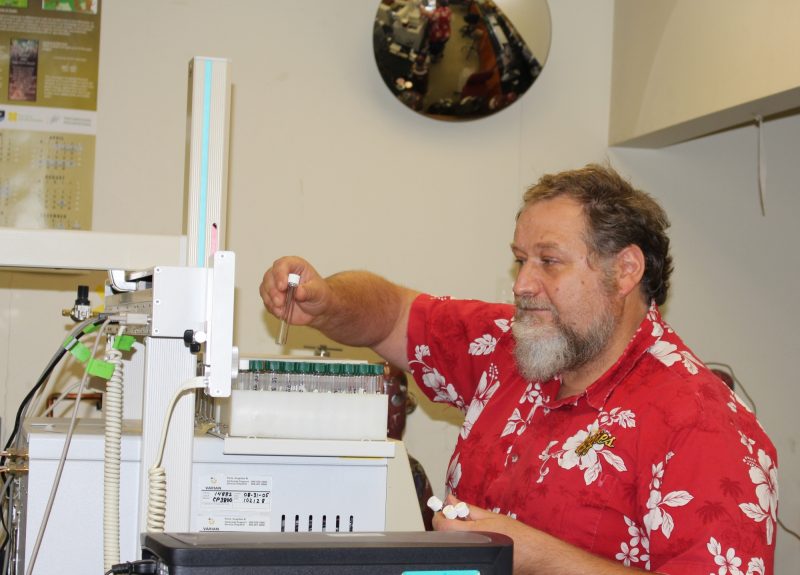
Professor Mario Tenuta will find new sustainable farming practices by improving fertilization processes, using an array of sensors to study the soil
New research chair will reduce greenhouse gas emissions through better fertilizer management
The University of Manitoba has announced that Agricultural and Food Sciences soil science professor Mario Tenuta has been named the Natural Sciences and Engineering Research Council of Canada (NSERC) Industrial Research Chair (IRC) in 4R Nutrient Stewardship, with combined funding of $2,930,000 over five years.
The chair is awarded in partnership with NSERC, the Western Grains Research Foundation (WGRF), Fertilizer Canada, and UM. Tenuta’s research will advance 4R nutrient stewardship, an innovative approach developed with the fertilizer industry, to apply the ‘Right fertilizer at the Right rate, at the Right time and in the Right place,’ to enhance production goals, farm profitability and environmental sustainability.
“I thank our industry partners and the federal government for this support to finding sustainable solutions to better fertilizer management, critical to reducing greenhouse gas emissions,” said Dr. Digvir Jayas, Vice-President (Research and International) and Distinguished Professor. “I congratulate Dr. Tenuta on this well-deserved recognition of his research expertise and the expansion of his research program, which benefits both industry and farmers but also prepares our students for employment after graduation.”
Tenuta plans to resolve how 4R farming practices reduce emissions of the most important greenhouse gas emitted from soil, nitrous oxide (N2O), as well as developing new practices and the training of students to improve the sustainability of farming systems in Canada. His research will specifically work to evaluate how nitrification inhibitors stabilize fertilizers and reduce N2O emissions and N losses.

Mario Tenuta plans to resolve how 4R farming practices reduce emissions of the most important greenhouse gas emitted from soil.
“Strengthening Canada’s role as a major exporter of agricultural commodities relies on using nitrogen fertilizers more efficiently and with fewer losses to the environment,” said Tenuta. “The adoption of 4R practices depends on convincing farmers through good practical science.”
“WGRF is excited about the potential impact this research can have for farmers,” said Garth Patterson, WGRF Executive Director. “WGRF has made it a priority to increase agronomy research capacity in Western Canada, making a number of strategic investments including establishing a Research Chair in Cropping Systems at the University of Alberta, a Systems Integrated Agronomy Chair at the University of Saskatchewan and now an Industrial Research Chair at the University of Manitoba focusing on Nutrient Stewardship.”
“We are thrilled to hear the news of Dr. Tenuta’s appointment as SIRC in 4R Nutrient Stewardship,” said Garth Whyte, President and CEO at Fertilizer Canada. “This is truly a first of its kind initiative and we believe that Fertilizer Canada’s strengthened collaboration with Dr. Tenuta and our partners will significantly enhance efforts on the science-based knowledge of 4R Nutrient Stewardship, on the field and in our advocacy efforts moving forward.”
Tenuta has already begun by initiating long-term studies to contrast the benefit of 4R practices on direct N2O emissions and indirect emissions as ammonia (NH3) and leaching N losses on different soil types. This research seeks to improve models of N2O emissions to include 4R practices and will summarize farm survey information to gauge the current use of 4R practices and opportunities for improvement. Tenuta will combine his findings with other studies to forecast the extent by which the adoption of 4R practices can help Canada achieve greenhouse emission reduction commitments.
“Fertilizer nitrogen is the highest operating cost in field crop production in Canada. Our research and outreach are aimed at providing practical and feasible ways to improve crop productivity and reduce direct and indirect emissions of N2O and nitrate leaching. This will help Canadian farmers to continue to be leaders in the export of sustainably produced, high-quality food to much of the world,” Tenuta says.
As Chair, Tenuta will be at the forefront of nutrient stewardship research and training and will offer guidance in 4R practice implementation to advance Canada as a leader in 4R nutrient stewardship. The knowledge and infrastructure capacity created will enrich industry and research collaborations, to serve as a critical expertise hub to advance N use efficiency and environmental health.
Research at the University of Manitoba is partially supported by funding from the Government of Canada Research Support Fund.






